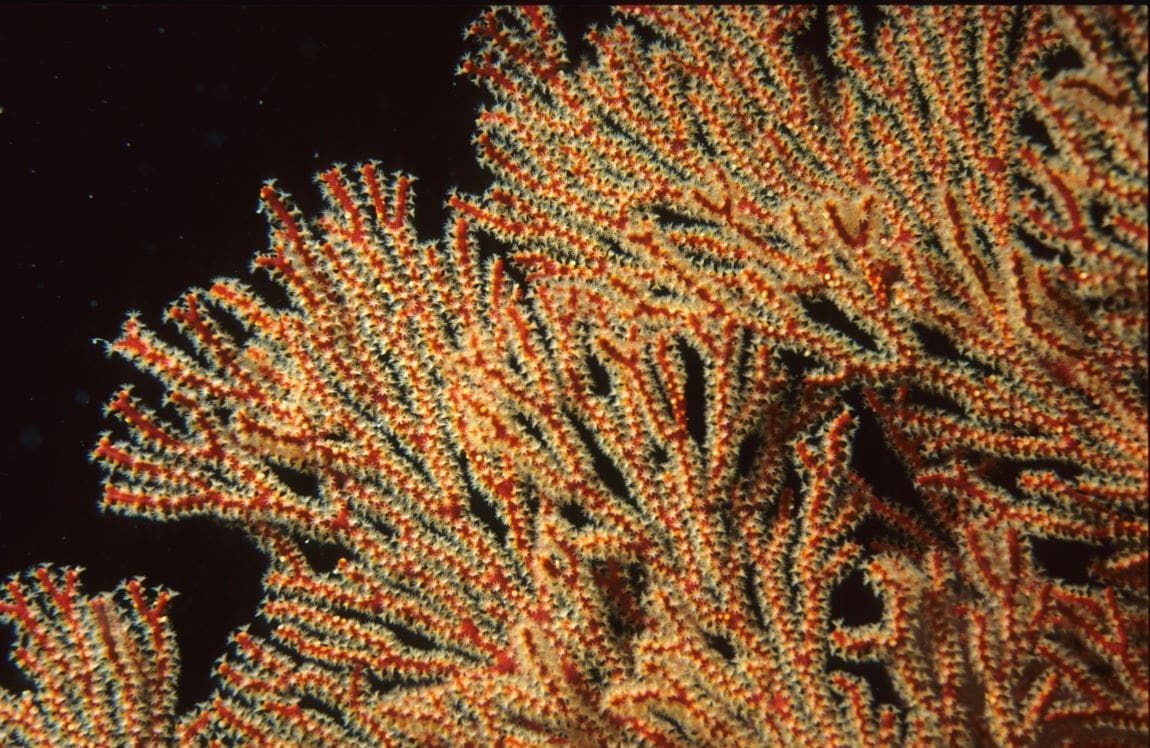By American Institute of Biological Sciences (AIBS)
As the effects of a changing climate and other ecological insults compound, many coral reefs face severe perturbations and a generally poor prognosis for recovery. In an article published in BioScience‘s new “Perspective and Insight” category, Dr. Peter J. Edmunds of California State University, Northridge, argues for the continued monitoring of coral reefs, even when the seascapes they inhabit are in a significantly degraded state.
Drawing from his ongoing 37-year study in the US Virgin Islands, Edmunds argues that “only consistent, rigorous, and detail-oriented monitoring can document the losses of coral that already have taken place and provide constrained glimpses of the benthic communities that will dominate shallow, tropical marine habitats in the future.”
Dr. Edmunds’s research relies heavily on photoquadrats—one-by-one meter underwater photographs taken at fixed locations over time. These images provide a consistent, quantifiable record of changes in coral cover and community composition, allowing researchers to track the health reef communities in great detail.
Edmunds’ monitoring has revealed unexpected resilience in some cases, alongside devastating losses in others, as well as other ecological surprises that challenge our understanding of reef dynamics. For example, two major hurricanes in 2017 had less impact on coral cover than a single hurricane in 1989—likely because chronic disturbances had resulted in a more hurricane-resilient low-cover state, says Edmunds. He continues, stating that long-term monitoring “supports an objective test of the role of acute versus chronic disturbances in driving changes on the reefs.”
In concluding, Edmunds argues for the great value of ongoing monitoring, both for conservation purposes and to provide a greater understanding of underlying ecological processes: “Monitoring remains the essential tool through which there is any hope of keeping up with detecting the fast pace of changes affecting the natural world in the twenty-first century.”
Journal Reference:
Peter J Edmunds, ‘Why keep monitoring coral reefs?’, BioScience (2024) biae046, DOI: 10.1093/biosci/biae046
Article Source:
Press Release/Material by AIBS
Featured image credit: NOAA | Unsplash




